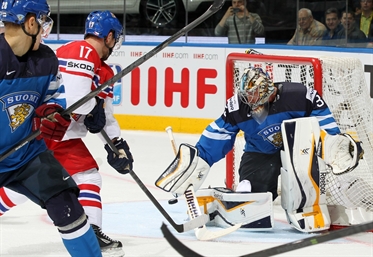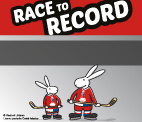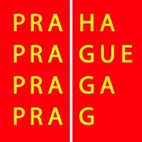Can Czechs conquer Finns?
Can Czechs conquer Finns?
Rinne factor looms huge in this do-or-die match

 Goalie Pekka Rinne recorded a 20-save shutout when the Finns defeated the Czechs 3-0 in the 2014 IIHF Ice Hockey World Championship semi-final in Minsk. Photo: Andre Ringuette / HHOF-IIHF Images
Goalie Pekka Rinne recorded a 20-save shutout when the Finns defeated the Czechs 3-0 in the 2014 IIHF Ice Hockey World Championship semi-final in Minsk. Photo: Andre Ringuette / HHOF-IIHF Images
If you buy that premise, the edge – at least in theory – belongs to the team in blue and white.
The always-industrious Finns are among the least desirable quarter-final opponents. And it’s not hard to see why. They have the tournament’s best goalie in the giant yet acrobatic Pekka Rinne, the MVP of the 2014 IIHF World Championship en route to the silver medal and a three-time Vezina Trophy finalist. He boasts a 1.30 GAA and 94.0 save percentage.
Not only did the Nashville Predators superstar establish a new modern-day tournament record for the longest shutout streak (237:05), but he also didn’t allow a single goal in the shootout showdown for second place in Group B versus defending champion Russia on Tuesday night.
In that 3-2 win, Rinne twice foiled Artemi Panarin, who's tied for second in tournament scoring, along with other KHL and NHL aces in Sergei Mozyakin, Vladimir Tarasenko, and Ilya Kovalchuk.
“He just keeps amazing me,” Finnish defenceman Sami Lepisto said. “I asked him after the game: ‘How did you get that pad out in the shootout against Kovalchuk?’ He’s incredible and the reason why we are playing so well.”
Czech captain Jakub Voracek emphasized the importance of getting traffic in front of Rinne: “If the goalie doesn’t see the puck, he’s not going to stop it. If he sees the puck, he’s going to stop it 99 percent of the time. We’ve got to make sure we put a lot of pucks on him and just crash the net all the time, because he’s been their best player.”
Ondrej Pavelec, the number one Czech goalie, has performed creditably (1.58 GAA, 92.1 save percentage) since Alexander Salak floundered after getting the start in the opening 6-5 overtime loss to Sweden and a 4-2 win over Latvia.
Yet matching Rinne save for save is a tall order for the Winnipeg Jets starter. And the Finns, who have allowed a tournament-low nine goals (half as many as the Czechs), do a better job of protecting their netminder, from blocking shots to collapsing around the goal. The Czechs struggled to score on Switzerland in their 2-1 shootout win to end the round-robin, and the Finns are tougher.
“They didn’t get scored on four games in a row – it means something,” Voracek said of the Finns. “So we’ve just got to make sure that we’re gonna be patient.”
That’s a good plan. Yet it will be hard to implement in what’s sure to be a frenzied atmosphere at the O2 Arena.
“There will be 18,000 people there watching the game and cheering for the Czechs,” said Lepisto. “It will be different, for sure, but it will be fun.”
Czech fans are ravenous for success. Their team hasn’t won gold since 2010, or any medal since 2012’s bronze. All that hopping, clapping, and chanting will have the Czechs fired up at the start.
But it’s a two-edged sword. The burden of expectations can be overwhelming. If things don’t go well early on and the Czechs start trying to force things offensively, that will play right into Finland’s hands.
That’s certainly what happened in the quarter-finals of the Sochi Olympics last year, when Finland stunned host Russia 3-1. Year in and year out, the Finns come together as a team from Day One, regardless of the exact personnel they’re using. Right now, they’re playing with confidence and they don’t have much to lose.
In terms of offensive defencemen, Dallas Stars prospect Esa Lindell has stepped up nicely for Finland (1-5-6). However, the Czechs may have a little edge in this department with the likes of savvy puck-mover Ondrej Nemec (3-3-6) and the hard-shooting Jakub Nakladal (0-4-4).
The Czechs bring a more famous NHL pedigree up front, with Philadelphia’s Voracek (3-4-7) and Florida’s Jaromir Jagr the marquee attractions. At age 43, Jagr (4-2-6) continues to amaze with his poise, puckhandling, and sheer strength. The IIHF Triple Gold Club member knows what it takes to succeed in these big games. Twenty-year-old Plzen star Dominik Simon (1-5-6) has been dangerous and creative, as have KHLers like Roman Cervenka and Martin Zatovic.
But the Finns have done just fine producing offence too, going unbeaten after a lackluster 5-1 loss to open the tournament against the Americans. From emerging Liiga talents like Donskoi (5-2-7) and Joonas Kemppainen (3-6-9) to Florida NHL teammates like youngster Aleksander Barkov (3-3-6) and canny veteran Jussi Jokinen (2-7-9), they’re taking care of business.
“Having our four lines working and producing the rest of the way is crucial,” Lepisto said. “Every line can score and we need that. Barkov’s line has been really solid for us. It’s been great. We have to defend and overall just be good.”
There is mutual respect between these two opponents.
“They have a good team and I’m sure the game will be tight,” said Finland’s Joonas Donskoi, who tallied the late tying goal and shootout winner versus Russia. “They have skilled players.”
“It’ll be a quick game,” said Czech forward Tomas Hertl. “Finland is a great team.”
In the last World Championship clash between the Czech Republic and Finland, Rinne made 20 saves in a 3-0 semi-final shutout on May 24, 2014.
If the Czechs can get to Rinne early and ride the momentum from an ecstatic crowd, they could move on to face the winner of Canada-Belarus. Otherwise, this affair will likely recall the heartbreak of the 2004 quarter-final in Prague, where the Americans eliminated the host nation in the very same building.
Back to Overview























































































